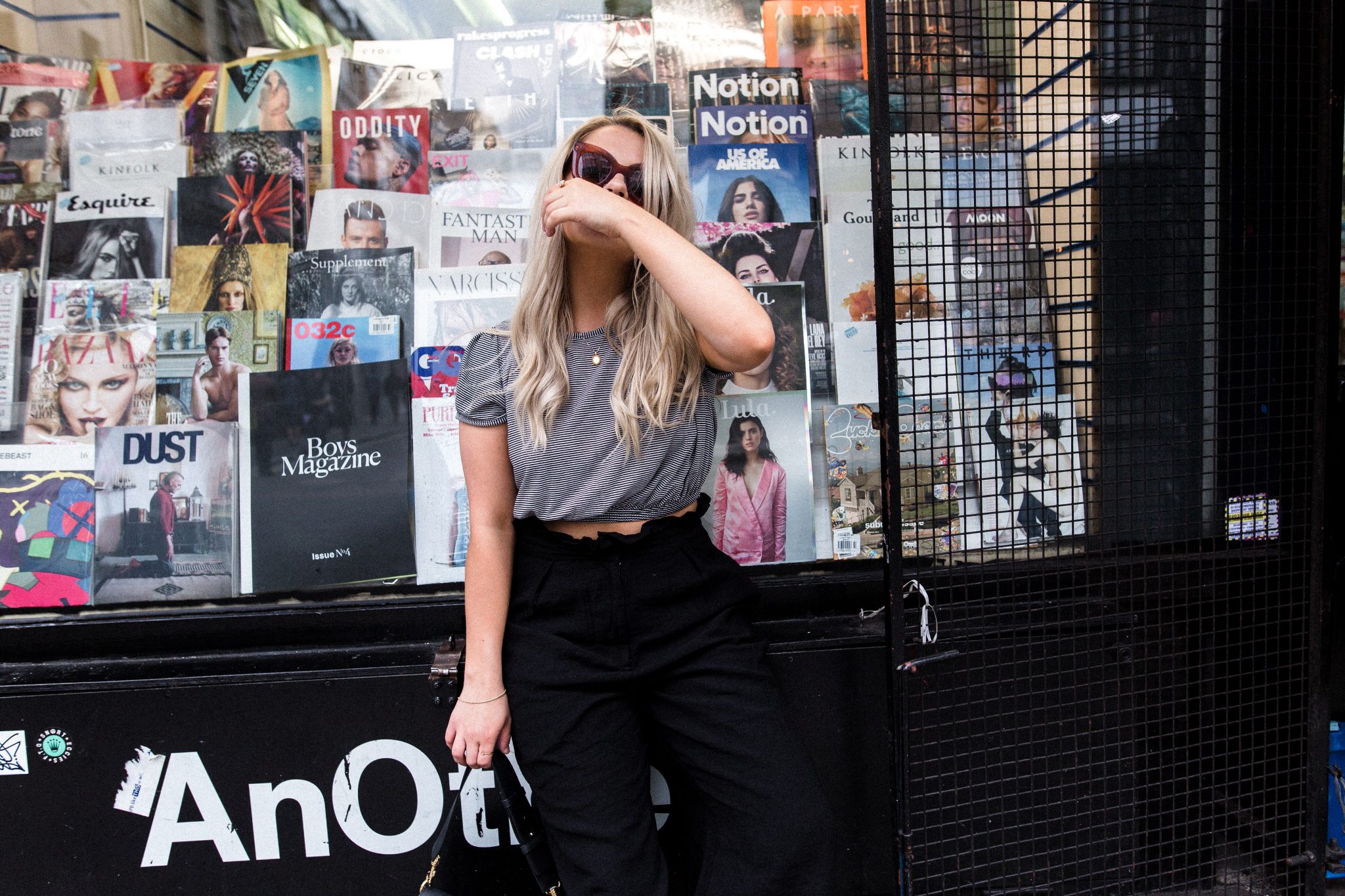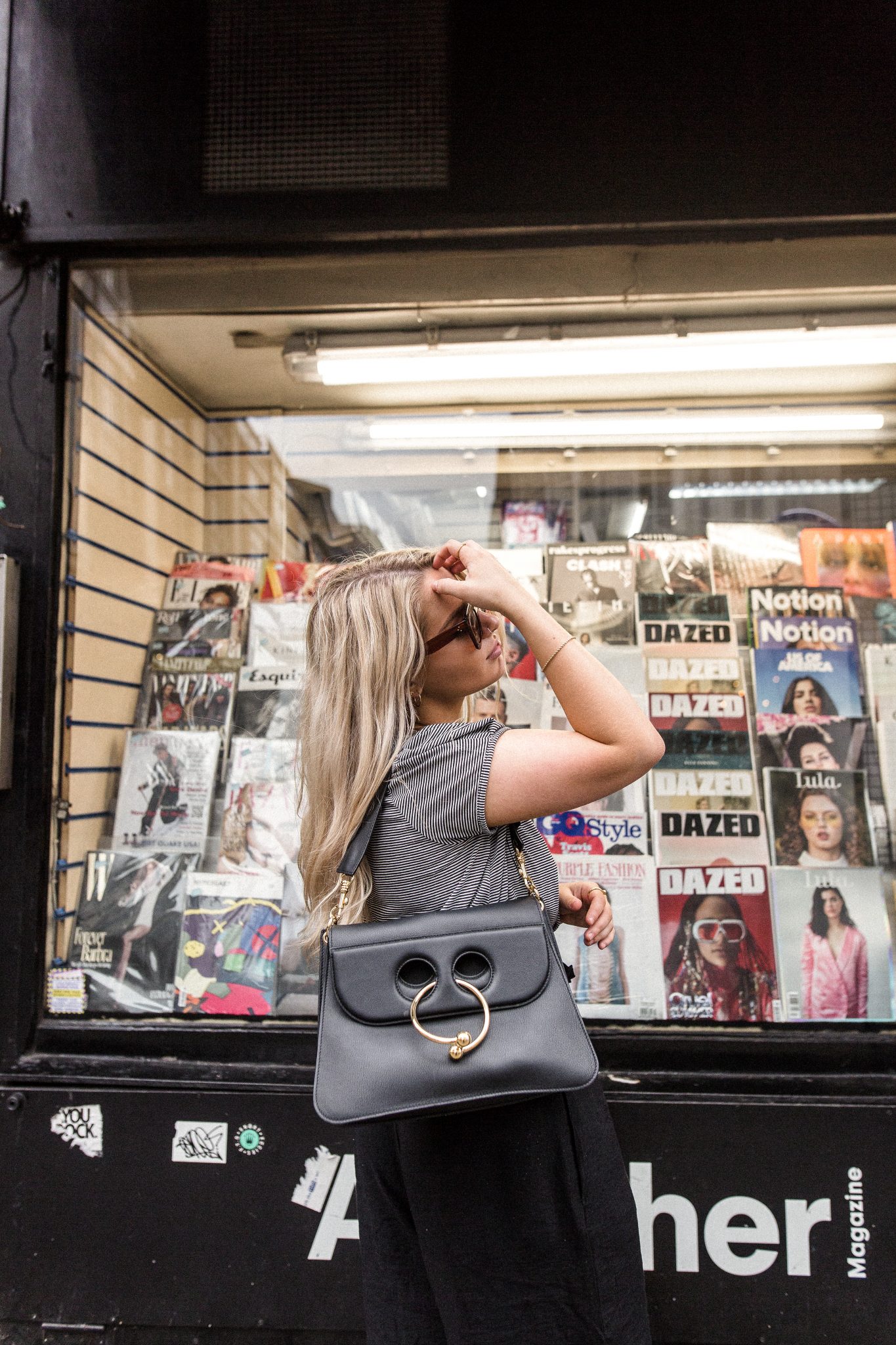


I was sitting in the car with Hannah yesterday, discussing our lives and the internet and work, and we came onto the subject of the hit Netflix show, Love. If you haven’t heard of Love, it’s a web TV series created by Judd Apatow - king of the rom-com - and stars the until now, relatively unknown Paul Rust and Gillian Jacobs.
Now, Paul Rust is far from the stereotypical Hollywood leading gent. Even for a rom-com, we’re used to seeing the likes of John Krasinski and Chris Pratt, who we’re tricked into thinking are the ‘funny’, ‘normal’ guys but who, in reality, are actually disgustingly tall, ripped and good looking. Also co-creator of the show, Paul Rust playing character Gus Cruickshank is an applaudable move away from the Men’s Fitness cover star guy, to the geeky, kinda not great looking but relatable guy.
The fact that Gus is portrayed as a not conventionally good looking character is part of his charm. He doesn’t need to be good looking, because he’s sweet, funny and clever. He’s quirky in a good way (not in the I-collect-doll’s-heads way), like recreating TV theme tunes with his friends over a beer at the weekend or being the ultra-polite, ultra-sensitive on-set tutor for a tween actress. We’re lured into loving him precisely because he isn’t a testosterone-fuelled macho machine, or the lad lad lad jock who just so happens to be a sensitive songwriter too.
Then, on the other hand, we have Gillian Jacobs as Mickey Dobbs. Mickey is a troubled, rebellious Manic Pixie Dream Girl, dressed head to toe in Urban Outfitters and one of her guitar-playing ex boyfriend’s flannel shirts. She’s that annoyingly beautiful TV girl that gets ready in 10 minutes by taking a quick shower and eating a piece of leftover pizza. On top of that she’s brave, funny and sensitive, but all of that comes in combination with the fact that she’s very attractive.


And we’re not talking a normal 6/10 level of attractiveness. We’re talking Gillian Jacobs on the front cover of Esquire attractive. Although Love is presented to us as a more realistic rom-com centring around the difficulty of dating and the flaws in our characters, in actual fact, our female character has moved no further away than Angelina Jolie in every film ever. Yes, the female lead can have depth and humour and out-and-out shitty character traits, but she absolutely must be attractive first.
We don’t get that with the male lead. Gus isn’t cute, but that’s not a defining requirement of his character. Mickey, on the other hand, must first be cute, and then whatever else the writers decide. This isn’t a coincidence of the character, either. The other woman that Gus ends up dating is a blonde bombshell actress - one of the stars on the TV show that he works on. If Love starred Bradley Cooper, then this wouldn’t raise a red flag to me. Bradley Cooper is so good looking that I will even forgive him for doing the third Hangover film, but Paul Rust is precisely the opposite to make a point.
So why is it that can have a ‘real’ guy, but not ‘real’ women? Why does Love pretend to be switching it up with the dorky and quietly charming Gus, but in the same breath tries to tell us that both the beautiful Mickey and Heidi (the actress, played by Briga Heelan) are attracted to him?
Unfortunately this is something that we see not only across our TV shows, but also across society. Take a quick look at our women leaders, for example. I’m the last person you’ll find supporting Theresa May, but I also lament the amount of publications that focus on her footwear rather than her policies. The same goes for Nicola Sturgeon (although I am somewhat more of a fan); countless times have I seen her name splashed across the front page of a newspaper, only to be followed by a comment on her clothing or the amount of leg she’d dared to show on a hot summer’s day.



Our female performers suffer the same. Take Adele; despite her unbelievable talent and North London charm, her body as a plus-size woman is time and time again brought to the forefront of discussion, in a way that we rarely ever see for people like James Corden or Sam Smith (who I’m aware is now looking super svelte).
Truth is, I actually love Love. I think it’s funny, engaging and heart-warming and plus it’s available an entire series at a time, so it satisfies the binger in me. I’m just continually frustrated that in the TV shows and films I love, men are diversifying and being allowed to be not good looking, whilst the women remain static. PSA: women can be funny and talented without being pretty.
And it irritates me that by not developing and exploring that on camera, we’re reinforcing the idea that to be pretty is the most important for a woman.
This is definitely something I’ve been able to come to terms with more over the past year or so.
Building a career on what is largely a visual representation of myself, it’s often difficult to extrapolate ‘pretty’ from successful. I’m as much a victim of the “ideal” woman as anybody else, and I can’t deny that many times I’ve found myself wondering: “if I was taller, would I be more marketable? If I was thinner, would I win bigger projects? If I was prettier, would I be happier?”
SHOP THE POST




In high school, being pretty (or fit or buff or peng or piff, depending on your generation) was a big deal. Even in sixth form, too. I remember a group of boys ranking all of the girls hottest to nottest one day, and I was placed lower-middle - an admirable result, kind of like ‘well done for trying’ ribbon. During my teens and into my very early twenties, I really, really, just wanted to be pretty. I wanted people to look at me and be like “shit, yeah, she’s hot”, because I had never been that girl growing up. I was the clever one, the short one, or the pretty one’s best friend (hi Jade, if you’re reading - this is very much still true).
But I think, both slowly and suddenly, I came to realise that I have so much more to offer. I’m curious, I’m sassy, I’m creative, and even though I take a decent photo and have my camera angles down to a fine art, I’m coming to terms with the fact that I’m never going to be the prettiest girl in the room. And that’s a-oh-fucking-kay, because that really doesn’t mean anything anyway. Being beautiful is great (and I can't deny that I wouldn’t switch roles with Emily Ratajkowski in a heartbeat), but actually, that is one the least defining and superficial characteristics a person can have.
Let’s champion being funny without needing that to be reinforced by pretty. Let’s question our women in power without needing to question their footwear choice at the same time. Let’s push to see more troubled, diverse and frankly, dickhead-ish women on TV without them having to fit the stereotypical white blonde prototype as a prerequisite.
Pretty is not the most important thing.
 Idle Waters: Quaint Cottage Countryside Retreat
Idle Waters: Quaint Cottage Countryside Retreat
 Why Solo Travel & Why Now? What Solo Trips Mean To *Us*
Why Solo Travel & Why Now? What Solo Trips Mean To *Us*
 Unplugged Retreat: A ‘No Phones’ Countryside Break
Unplugged Retreat: A ‘No Phones’ Countryside Break
 New Home Tour
New Home Tour

